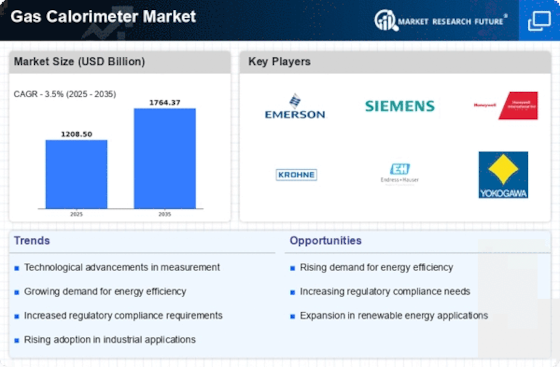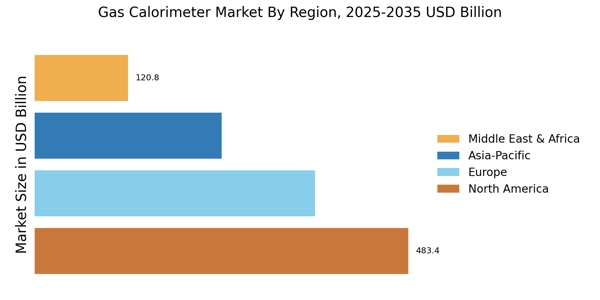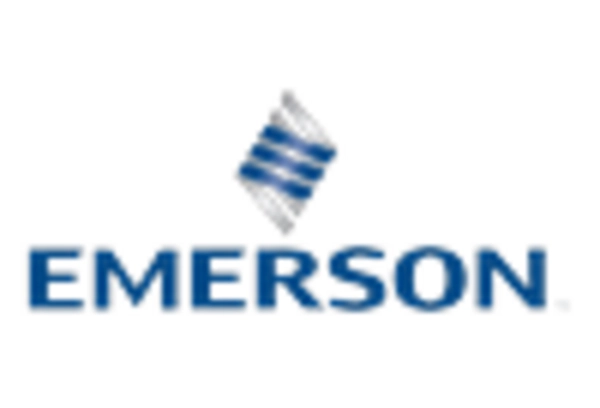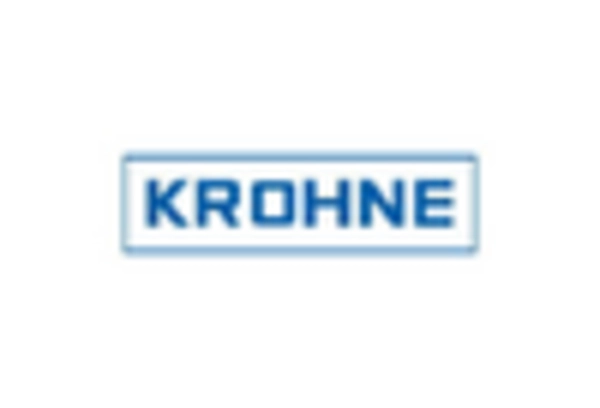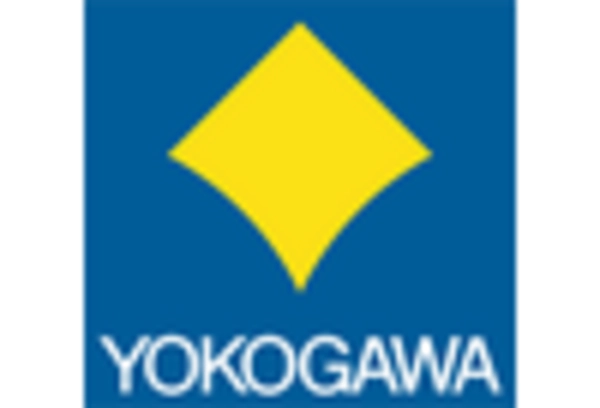Rising Demand for Energy Measurement
The increasing need for precise energy measurement in various sectors is a primary driver for the Gas Calorimeter Market. As industries strive for efficiency and cost reduction, accurate calorimetry becomes essential. The market for gas calorimeters is projected to grow at a compound annual growth rate of approximately 6.5% over the next five years. This growth is fueled by the rising demand for energy management solutions, particularly in the oil and gas transportation sector, where accurate measurement of calorific values is critical for operational efficiency. Furthermore, the integration of gas calorimeters in renewable energy applications is likely to enhance their adoption, as organizations seek to optimize energy consumption and reduce waste.
Expansion of Natural Gas Infrastructure
The expansion of natural gas infrastructure is a critical factor driving the Gas Calorimeter Market. As countries invest in developing their natural gas networks, the demand for accurate measurement tools becomes paramount. Gas calorimeters are essential for monitoring the calorific value of natural gas, ensuring efficient distribution and usage. The ongoing investments in pipeline projects and gas processing facilities are likely to bolster the market, as operators require reliable calorimetry solutions to optimize their operations. This trend indicates a robust growth trajectory for the gas calorimeter market, particularly in regions where natural gas is becoming a preferred energy source.
Technological Innovations in Calorimetry
Technological advancements play a pivotal role in shaping the Gas Calorimeter Market. Innovations such as the development of smart gas calorimeters equipped with IoT capabilities are enhancing measurement accuracy and data analytics. These devices allow for real-time monitoring and reporting, which is increasingly sought after by industries aiming to optimize their energy usage. The introduction of portable and user-friendly calorimeters is also expanding the market reach, making it accessible to smaller enterprises. As technology continues to evolve, the gas calorimeter market is likely to experience a transformation, with new features and functionalities that cater to diverse industry needs.
Increased Focus on Environmental Regulations
The Gas Calorimeter Market is significantly influenced by the tightening of environmental regulations across various regions. Governments are increasingly mandating accurate emissions reporting and energy consumption tracking, which necessitates the use of advanced calorimetry solutions. This regulatory landscape compels industries to adopt gas calorimeters to ensure compliance and avoid penalties. The market is expected to witness a surge in demand as companies invest in technologies that facilitate adherence to these regulations. Moreover, the emphasis on reducing carbon footprints and enhancing sustainability practices further propels the need for precise calorific value measurements, thereby driving the growth of the gas calorimeter market.
Growing Adoption in the Food and Beverage Sector
The food and beverage industry is emerging as a significant driver for the Gas Calorimeter Market. Accurate calorific value measurement is crucial for ensuring product quality and compliance with nutritional labeling standards. As consumer awareness regarding food quality increases, manufacturers are compelled to adopt precise calorimetry solutions to maintain competitive advantage. The market is witnessing a notable increase in the adoption of gas calorimeters in this sector, as companies seek to enhance their product offerings and meet regulatory requirements. This trend is expected to continue, with the food and beverage sector contributing substantially to the overall growth of the gas calorimeter market.


